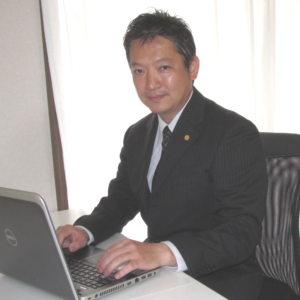Foreigners who marry a Japanese national can obtain a “Spouse of Japanese” visa/residence status.

- 1. Foreigners who qualify for the “Spouse of Japanese" visa
- 2. The most important aspect of the “Spouse of Japanese" visa is proving that it is not a sham marriage.
- 3. Pattern of strict screening for “Spouse of Japanese" visa application
- 3.1. Large age difference between spouses
- 3.2. The Japanese spouse has little property or income
- 3.3. Short period between meeting and marriage (engagement)
- 3.4. Lack of family involvement (or almost none)
- 3.5. Lack of records of interaction between spouses
- 3.6. Japanese spouse has multiple marriage/divorce histories with foreign spouses
- 3.7. Having been married in only one country
- 4. Required and Additional Documents for “Spouse of Japanese" Visa Application
- 5. How to create documents to obtain a “Spouse of Japanese" visa
- 5.1. Basic considerations when creating visa application documents
- 5.2. Creating the most important document: “Questionnaire"
- 5.3. Communication records: Almost essential documents
- 5.4. Importance of “Travel History" when living apart
- 5.5. Snapshots of just the two people are not enough
- 5.6. Having parents, siblings, or even children write a letter of appeal
- 6. Case Studies “Spouse of Japanese" visa
Foreigners who qualify for the “Spouse of Japanese" visa
The “Spouse of Japanese" visa includes not only foreign nationals who have married a Japanese national, but also those who have been adopted as a special foster child by a Japanese national or were born as a child of a Japanese national.
“Special foster child" is one of the legal statuses established under Japanese civil law, where the parental relationship with their biological parents is terminated and replaced solely by a parental relationship with their foster parents. For example, if their biological parents were abusive, they may be able to become a special foster child, but there are conditions such as the foster parent must be over 25 years old and the child must be under 6 years old.
“Born as a child of a Japanese national" literally means that their biological parents had Japanese nationality at the time of their birth. However, if their parents acquired Japanese nationality through naturalization after their birth, they would not be included in this category.
You may think that “if they are a child of a Japanese national, aren’t they also a Japanese national?" But this is not always the case. For example, if the child’s father is Japanese and the mother is a foreign national but they are not married, or if they did not choose Japanese nationality at the time of birth, or if they are not registered in the father’s family register or were born in the mother’s country of origin, they may not have Japanese nationality and would fall under this category.
However, the most common situation for obtaining a “Spouse of Japanese" visa is by marrying a Japanese national. So here, we will explain the process for foreign nationals who have married a Japanese national to obtain a “Spouse of Japanese" visa.
The most important aspect of the “Spouse of Japanese" visa is proving that it is not a sham marriage.
The legal basis for foreign nationals who have married a Japanese national to obtain a “Spouse of Japanese" visa is simply that they are in a legally valid marital relationship. The term “legal" broadly refers to any country, whether it be Japan, the foreign national’s home country, or even a third country (although a clear explanation would be necessary for the latter).
However, simply being in a formal marital relationship is not enough to obtain a “Spouse of Japanese" visa. It must be a genuine marriage in reality.
You may have heard of the term “sham marriage", which refers to a formal marriage entered into for the purpose of obtaining a visa such as the “Spouse of Japanese" visa, despite not actually intending to get married. Although the number of sham marriages has decreased somewhat in recent years, news reports still frequently feature cases of arrests related to sham marriages.
The immigration authorities also scrutinize this aspect strictly when processing applications for the “Spouse of Japanese" visa.
In other words, the most important aspect of applying for the “Spouse of Japanese" visa is proving that your marriage is genuine and not a sham marriage.
Pattern of strict screening for “Spouse of Japanese" visa application
Large age difference between spouses
If there is a large age difference between spouses, the application may be subjected to strict screening. There are no specific guidelines on how much of an age gap is considered too much, but generally, a difference of 15 years or more is scrutinized closely.
Among these cases, it is common for the Japanese spouse to be older than the foreign spouse.
However, a large age difference alone does not automatically result in the application being denied. Even if there is a large age gap, a genuine marriage may still exist. The age gap is simply one of the factors that will be closely scrutinized, and if there are reasonable explanations for the age difference or no other unfavorable factors, the application may still be approved.
The Japanese spouse has little property or income
If the Japanese spouse has little property or income, but the foreign spouse has a lot of property or income and the Japanese spouse will be a dependent, there will be no problem.
However, if both the Japanese and foreign spouses have little property or income, or if the Japanese spouse is significantly older and has little property or income, the application will likely be subjected to strict scrutiny.
In such cases, it will be necessary to provide a detailed and concrete explanation of how they will support themselves in Japan and what their plans are for the future. It may also be advisable to wait to apply until they can secure some income, such as by finding a job.
Short period between meeting and marriage (engagement)
If the period between meeting and marriage, or between meeting and engagement, is too short, it may also be a cause for strict scrutiny. Of course, since this is a matter of personal feelings, there may be cases of love at first sight. However, this alone does not automatically result in the application being denied; it will be evaluated along with other factors.
Furthermore, even if there is a several-month period between meeting and engagement or marriage, if they did not have direct contact during that time, such as if the foreign spouse was in their home country and the Japanese spouse was in Japan, this could also be unfavorable.
Lack of family involvement (or almost none)
Generally, when it comes to marriage, not only the individuals themselves, but their families are also very involved, meeting each other’s parents and having joint dinners. If there is no involvement or almost none, this could also be unfavorable.
Since they will be getting married in Japan, it may be difficult to communicate with the foreign spouse’s family, and if the Japanese spouse is older, their parents may have already passed away. However, if there is no communication or involvement with the foreign spouse’s family, it will be a major disadvantage during the screening process.
On the other hand, if they can provide evidence of visits to the foreign spouse’s home country or visits from the foreign spouse to Japan, such as travel records or photos, this will be very advantageous during the screening process.
Nowadays, communication can be facilitated through video chats, so even if it feels forced, it is a good idea to have several video chats and keep records of them.
Lack of records of interaction between spouses
If there are no records of interaction or communication during the courtship or marriage period, this will be very disadvantageous during the screening process.
Especially for the immigration bureau, it is mandatory to submit records of communication through phone calls, letters, and social media.
If the foreign spouse is living abroad, it would be unnatural if there were no records of visits by the Japanese spouse to the foreign country, or visits by the foreign spouse to Japan. It is natural for there to be some visits during the courtship or marriage period.
Japanese spouse has multiple marriage/divorce histories with foreign spouses
Having multiple marriages and divorces with foreigners may work against you in the visa application process, although it’s not a decisive factor. This may raise suspicions of fraudulent marriages to repeatedly gain income, for example.
Having been married in only one country
Having been married in only one country is not a big negative factor. On the contrary, being married in both countries of the couple can be considered a positive factor.
Marriage is legally valid if proper procedures are followed in any country. However, if you only register the marriage in one country, the other country may treat you as a single person, which may seem unnatural.
Therefore, in a typical marriage, you would register the marriage in one country and then follow procedures in the other country as well. If you haven’t done this, it is recommended to explain the reason for it.
Required and Additional Documents for “Spouse of Japanese" Visa Application
To obtain a “Spouse of Japanese" visa in Japan, a foreigner who already lives in Japan needs to apply for permission to change their residency status. On the other hand, if you want to bring your spouse living abroad to Japan, you need to apply for a certificate of eligibility for residency and obtain it.
For either application, except for the application form, the required documents and additional documents are similar. Please consider the following documents as those that should be submitted for both types of applications.
Required Documents for “Spouse of Japanese" Visa
The required documents are the minimum documents required for application that are listed on the Ministry of Justice website. If you do not have these, you may be asked to submit additional documents or your application may be rejected.
- Application form (certificate of eligibility application or permission to change residency status application) x 1
- Face photo (H4cm x W3cm) x 1
- Japanese spouse’s family register copy (if the marriage with a foreign spouse is not recorded, also include the certificate of acceptance of marriage notification) x 1
- Marriage certificate in the applicant’s home country x 1
- Certificate of taxation and payment of resident tax for the Japanese spouse, and for the applicant if the Japanese spouse receives support from the applicant (if applicable) x 1
- Statement of personal guarantee filled out by the Japanese spouse x 1
- 2-3 snap photos of the couple
- Questionnaire x 1
Additional documents for “Spouse of Japanese" visa
While the minimum required documents are as listed above by the Ministry of Justice, it is rare for an application to be approved based on just these documents. In my experience, I advise preparing the following documents depending on the situation:
- Statement of Reason (clearly explain the process of marriage or any other aspects that need clarification. The contents will vary greatly depending on the situation.)
- Communication history (records of phone calls, letters, SNS, etc.)
- Travel history (history of going to the partner’s home country, etc. Copy of passport)
- Snapshots (2-3 photos are not enough. Prepare 10 or more photos including not only the couple but also family, friends, and pictures from wedding ceremonies or dinners.
- Letters (pleading letters from family, friends, and company affiliates)
How to create documents to obtain a “Spouse of Japanese" visa
Basic considerations when creating visa application documents
After this, we will discuss the creation of individual documents for obtaining a “Spouse of Japanese" visa, but first we want to focus on the overall important considerations.
As mentioned earlier, the most important thing in creating documents is to prove that this marriage is not a fake marriage but a real one throughout the entire document.
For example, even if the couple is around the same age, works at the same workplace, has been introduced to each other’s parents, and had a grand wedding, it will not be understood by immigration if it is not properly documented and proven. Basically, immigration officers will not just “understand" without evidence.
Moreover, if the couple has a significant age difference, has a low income, has not met each other’s parents properly, and did not have a wedding, it will be very difficult for a third party to believe that it is a genuine marriage.
It is necessary to create documents that make it clear to third parties the flow of events from meeting to the courtship period, engagement, marriage, and life after marriage, as well as the couple’s work and economic situation, family and relatives’ situations, and other relevant information.
Creating the most important document: “Questionnaire"
The questionnaire is a document provided by the immigration authorities and is required to be filled out when applying for a residence status such as “Spouse of Japanese", “Spouse of Permanent Resident", or “Long-term Resident". You can download it from here.
As for creating the questionnaire, the process is the same for other types of visas, so we have written a separate article about it. Please check the link here.
Communication records: Almost essential documents
Documents that demonstrate what kind of communication has taken place between spouses during their courtship period and after marriage are almost always required to prove the authenticity of the relationship.
Even if the two individuals live apart, there should be some form of communication that remains, and even more so in today’s world with instant messaging apps like LINE. Therefore, it is common to have such records even after marriage.
However, it is not necessary to overthink it. According to immigration, it seems that they do not scrutinize the contents too much, so it should be sufficient as long as it is presented formally.
What is important is to present records from the courtship period to the present, evenly spread out.
For example, if the courtship period was one year and the marriage period was six months, it would be sufficient to print about 18 screenshots of LINE conversations every two months, consisting of two screenshots each time for a total of nine times.
Importance of “Travel History" when living apart
Especially when a foreign spouse is living abroad and the Japanese spouse is in Japan, submitting “travel history" is extremely important.
Do not assume that the immigration office knows everything about your situation. Immigration officers will not go out of their way to research your history.
There may be cases where the Japanese spouse visits their foreign spouse, or the foreign spouse visits Japan, so it is a good idea to copy the pages of the passport with entry and exit stamps and create a list of travel history such as “Visited xxx from xx/xx/20xx to xx/xx/20xx."
In addition to the couple’s travel history, also include travel history such as when Japanese parents visited foreign in-laws or when foreign parents visited Japan.
Snapshots of just the two people are not enough
The Ministry of Justice’s website states that “two or three snapshots of the couple together" are necessary, but in reality, this is not enough (depending on the situation and the people).
People who engage in fake marriages typically only take photos of themselves alone in secret, and even if they are together in a photo, it is not enough to prove that the marriage is genuine.
Submit various photos such as those taken at events (birthdays, Christmas, New Year’s, trips), photos of hanging out with friends, photos of celebrations or parties, photos of blessings for the marriage, and photos of the couple with their parents or families.
Copy them onto A4 paper and write a description of the date and what is happening in the photo. Make sure to create documents that can be easily understood by the immigration office.
Having parents, siblings, or even children write a letter of appeal
Having your parents write a letter can be very effective. Whether or not you submit it can greatly affect the outcome.
For example, you could have your mother write a letter saying “When I first heard that my child was going to marry a foreigner, I was very surprised, but after meeting them and seeing how happy they make each other, I support their marriage. I humbly request that you grant them permission to stay in Japan for the sake of their happiness." If she signs the letter and attaches a certificate of seal impression, it would be perfect.
I have also had a student who was studying in Japan write a letter to his mother who lived overseas for his foreign spouse’s mother.
If your parents live overseas, having them write a letter can also be effective. If it is in English, that is fine, but if it is in another language, it will need to be translated into Japanese.
If it is signed and has a signature certificate attached, it would be perfect.
Case Studies “Spouse of Japanese" visa
Case Study: Japanese Husband in his 70s and Sri Lankan Wife in her 40s applying for refugee status
This is clearly a high-difficulty case, but the Japanese husband has a positive attitude towards marriage. Given their age difference, it didn’t seem like a typical relationship, but it also didn’t seem like a marriage of convenience. It made us realize that there are various motives for marriage.
The wife is currently applying for refugee status and holds a “specific activity" visa. Generally, foreign nationals who are applying for refugee status are not allowed to change their visa status, but there is a possibility that they can change their visa status to a marriage-related visa such as “spouse of Japanese", “spouse of permanent resident", “settler", or “family stay".
The man had a daughter and grandchildren, and the woman had a son who was attending a Japanese language school in Japan. Both families were in contact and there were many photos of them together. This was the first point.
We had the husband’s daughter and the wife’s son write “plea letters". This was the second point.
Furthermore, since the man had real estate, we also submitted the registration of that property. This is because if the man were to pass away, the wife could inherit 50% of that property. This shows that they were prepared to get married and provides strong evidence. This was the third point.
The first application was not approved due to a simple discrepancy in the documents. The reason for the rejection was that the contents written in the previous application and the current application were different. This was due to the husband’s mistaken memory, so we submitted an explanation in the form of a statement for the second application, and it was approved smoothly.
Case study 2: Japanese husband in his 30s and Chinese wife in her 20s, technical intern
The Japanese husband had previously worked with our office to prepare documents for bringing his Chinese girlfriend to Japan on a short-term stay. He later approached us with the request to prepare documents for marrying another Chinese woman, which is how this case began.
As the woman was a technical intern, changing her residency status immediately was difficult. However, as she was not in a rush to leave her internship program, we proposed that they get married while she continued her technical training, and then change her residency status to “spouse of Japanese" visa after her internship was completed.
After successfully completing her three-year internship program, and with enough time left on her visa, we applied for a change of residency status. We were able to obtain permission easily with the certificate of completion issued by the supervising organization.
Case study 3: Japanese wife in her 40s, Pakistani husband in his 30s, refugee applicant
This was another case involving a foreigner who was applying for refugee status. When they first consulted us, they were not yet married, but we advised them that they needed to be married before they could apply for a visa. It took some time for them to get married and find a new place to live.
They met each other at the same workplace, which was a positive factor. With the help of the wife’s cooperative mother, who came to our office with them, provided pictures, and wrote a letter of appeal, we were able to obtain permission easily.










